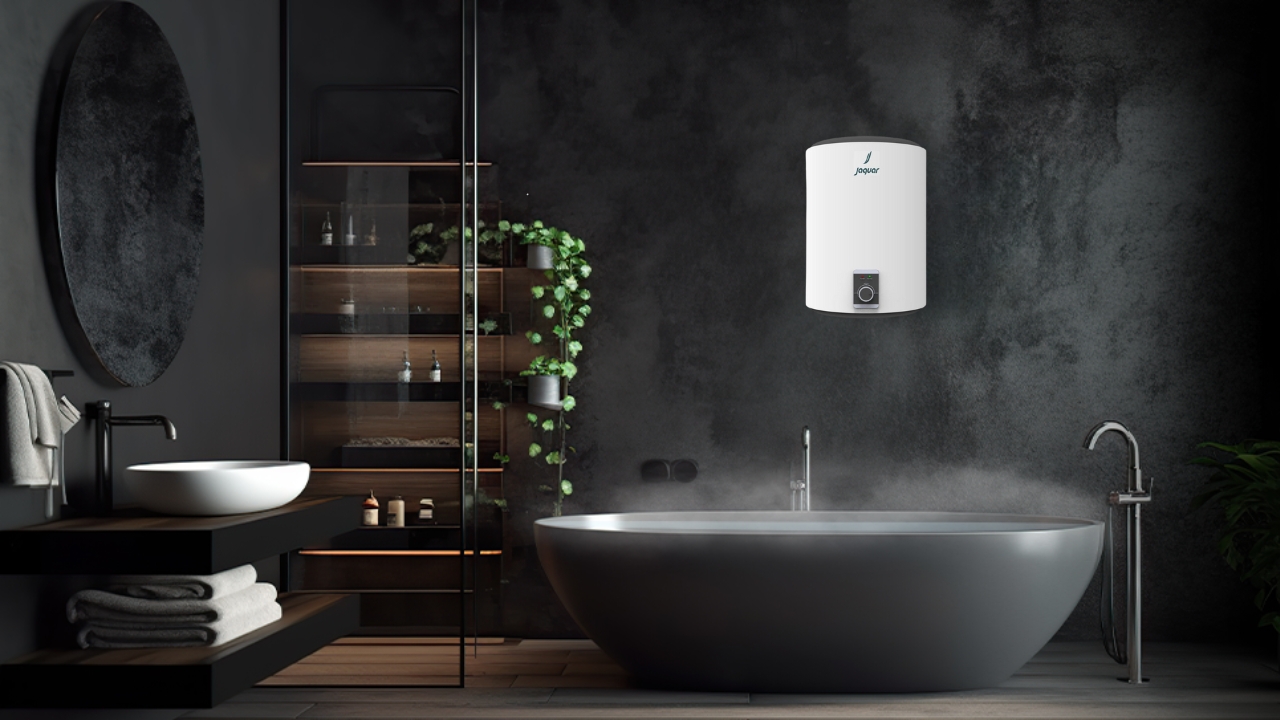Water heaters are essential appliances in any home, providing the comfort of hot water for showers, washing dishes, and other daily activities. However, like all appliances, they can encounter problems over time. Understanding common water heater issues and their solutions can help you maintain your system efficiently and avoid unnecessary costs. In this article, we'll explore five common water heater problems and provide practical solutions to each.
Common Water Heater Problems And Their Practical Solutions
1. No Hot Water

Credits: Canva
Check the Thermostat Settings
One of the most common issues with water heaters is a lack of hot water. Often, this problem can be traced back to incorrect thermostat settings. If the thermostat is set too low, your water heater won't generate enough heat to provide hot water. Check the thermostat settings and adjust them to ensure they are at the desired temperature, typically around 120°F (49°C).
Inspect the Heating Element or Gas Burner
If adjusting the thermostat doesn't solve the problem, the issue may lie with the heating element (for electric water heaters) or the gas burner (for gas water heaters). For electric models, check if the heating element is functioning properly. If it's damaged or malfunctioning, it may need to be replaced. For gas models, ensure that the gas burner is clean and igniting properly. A malfunctioning burner may require professional repair or replacement.
2. Water Not Heating Enough
Adjust the Thermostat Temperature
When your water heater isn't providing sufficiently hot water, the thermostat might be set too low. Increase the temperature setting gradually and monitor the water temperature. Be cautious not to set it too high to avoid scalding.
Flush the Tank to Remove Sediment Build-Up
Another cause of inadequate heating could be sediment build-up inside the tank. Over time, minerals in the water can accumulate at the bottom of the tank, insulating the water from the heating element. Flushing the tank to remove sediment can improve heating efficiency. To do this, turn off the power or gas supply, connect a hose to the drain valve, and let the water run until it runs clear.
3. Strange Noises from the Tank

Credits: Jaquar
Drain and Flush the Tank to Remove Sediment
Strange noises such as popping or rumbling can indicate sediment build-up in the tank. The sediment can cause the water to overheat and boil, leading to these noises. Draining and flushing the tank can help eliminate this issue. Regular maintenance to flush the tank every six months can prevent sediment accumulation and prolong the life of your water heater.
Inspect and Replace the Anode Rod if Necessary
Another potential cause of unusual noises is a deteriorating anode rod. The anode rod is designed to prevent tank corrosion by attracting corrosive elements in the water. If it's worn out, it can lead to increased tank corrosion and noise. Inspect the anode rod and replace it if necessary.
4. Water Leaks Around the Tank
Tighten Loose Connections or Valves
Leaks around the water heater tank can be due to loose connections or valves. Check all connections and valves for any signs of leakage. Tighten them carefully to stop the leak. Ensure you turn off the water supply and relieve pressure before making any adjustments.
Replace Faulty Temperature and Pressure Relief Valve (TPR Valve)
If tightening connections doesn’t resolve the leak, the temperature and pressure relief valve (TPR valve) might be faulty. This valve is crucial for releasing excess pressure and preventing tank explosions. If it's defective, it could cause leaks. Inspect the valve and replace it if needed.
5. Rusty or Discolored Water

Credits: Jaquar
Flush the Tank to Remove Sediment and Corrosion
Rusty or discoloured water often indicates sediment or corrosion inside the tank. Flushing the tank can help remove sediment and improve water quality. If the water remains discoloured after flushing, there might be corrosion inside the tank, which may require professional inspection.
Consider Installing a Water Softener or Filtration System
If rust and discolouration persist, installing a water softener or filtration system might be beneficial. Hard water can contribute to corrosion and sediment build-up. A water softener can help reduce these issues and improve the quality of your water.
Conclusion
Water heaters are indispensable for modern living, and understanding how to troubleshoot common problems can save you time and money. By regularly checking and maintaining your water heater, you can ensure it operates efficiently and reliably.
For those seeking a high-quality, reliable water heater, Jaquar offers a range of top-notch options. Jaquar water heaters are designed with advanced safety features, such as double safety thermostats, multi-function safety valves, and earth leakage circuit brakes, to provide peace of mind and long-lasting performance. With features like high-density insulation and corrosion-resistant materials, Jaquar ensures that your water heater remains efficient and durable. Explore Jaquar’s premium range of water heaters and experience the difference in quality and performance.
FAQs
How often should I flush my water heater to prevent problems?
Flushing your water heater every six months is generally recommended to prevent sediment build-up and maintain optimal performance. However, if you have hard water, you might need to flush it more frequently.
What causes water heater tanks to leak, and can they be repaired?
Water heater tanks can leak due to several reasons, including loose connections, faulty valves, or corrosion. Minor leaks can often be repaired by tightening connections or replacing faulty valves. However, severe leaks or tank corrosion might require professional repair or replacement of the tank.
Should I repair or replace my water heater if problems persist?
If your water heater is experiencing frequent or severe issues, it might be more cost-effective to replace it rather than continually repair it. Consider the age of your unit and the cost of repairs when making this decision.
Can I perform maintenance on my water heater myself, or should I hire a professional plumber?
While some maintenance tasks, like flushing the tank and checking thermostat settings, can be done yourself, more complex issues, such as repairing leaks or replacing heating elements, should be handled by a professional plumber to ensure safety and proper repair.


